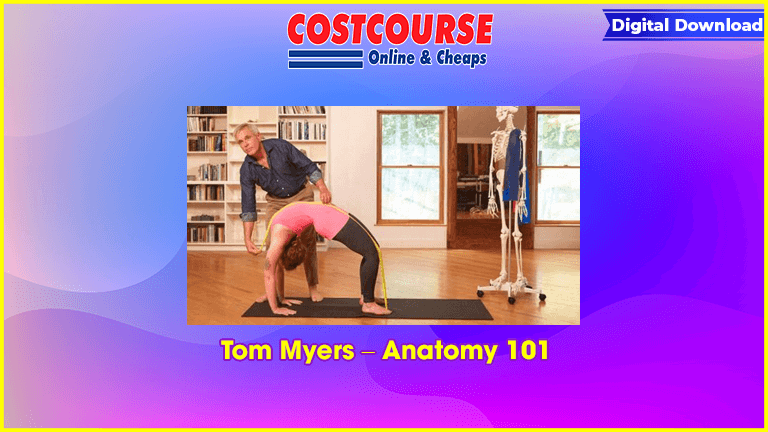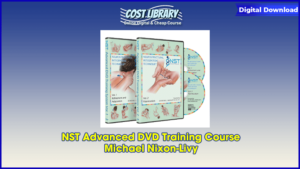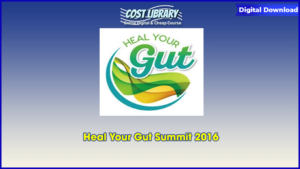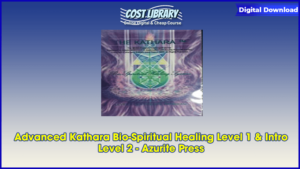Join Anatomy Trains author Tom Myers for this seven-week introduction to basic anatomy. This course will help yoga teachers and students alike learn anatomy in a holistic, relational, and practical way.
Tom Myers – Anatomy 101
You’ll begin with a new way to map the body in terms of cells, the fascial fabric, and the neuromuscular system that creates the foundation for kinesthetic literacy. Tom teaches you how to identify common postural patterns, as well as strategies for cueing to awaken parts of the body that may need work. You’ll travel from the arches of the feet and legs; to the fans of muscle around the hip, adductors, and the psoas; into an exploration of deep breathing involving the abdomen, diaphragm and the rib basket; along the springy spine; into how the the shoulders drape over the ribs; and ending with the neck, head, and jaw. This course asks the question how are we shaped, and what shapes us.
You’ll learn a new way of seeing anatomical patterns through Tom Myer’s unique approach to body reading and postural assessment, and you’ll discover how yoga, movement, and fascial release might be best used to unwind those deeply ingrained patterns and invite structural and functional integration. The result: increased vitality, balance, grace, and ease.
While this course is guided by Myers’ pioneering work on anatomy trains, it is not an online companion to his book. Rather, this course applies the wisdom of Myers’ system to reading bodies, cueing poses, and teaching and practicing yoga.
Course objectives:
Understand the basic arrangement of bones, muscles, joints, and fascia relative to six regions of the body.
Understand why fascia is important to the body, yoga, and how it works in stretching as well as ,strengthening, injury, and recovery
Learn how to read bodies and assess postural patterns in many yoga poses
Develop strategies for addressing common postural patterns and other things noticed during body reading and postural assessment
Each week you’ll get:
• A breakdown of the key bones, bony landmarks, muscles, ligaments, and tendons of a part of the body, along with their function and a way to identify them on your own body.
• Tips for reading bodies and strategies for how to address common patterns.
Curriculum:
Week 1: Introduction
An introduction to Anatomy Trains Myofascial Meridians and Tom Myers’ unique perspective on holistic anatomy. What is a body? How does it communicate? How are you moving and what are you moving towards?
Week 2: Arches and Legs
Your feet “under stand†you, do you understand them?
Learn the relevant anatomy including bones, muscles, and myofascial meridians in the arches and legs, and how to “BodyRead†patterns in standing and in gait through Tom’s proven methodology of postural assessment. Once you see the pattern, Tom will provide some basic strategies and samples to use movement as medicine to help bring arches and legs back into structural and functional balance.
Week 3: Fans of the Hip
The pelvis is your powerhouse for the spinal engine.
Tom’s 40 years of experience shines in this exploration of the human pelvis, and you will enjoy Tom’s ability to translate complex concepts into an easy to understand tour of the pelvic bowl and related anatomy, how it influences breath, gait, and posture. Assessment and strategy of common postural and movement patterns will be explored with easy to follow guidance from Tom.
Week 4: Abdomen, Chest, and Breath
Open your breath to new possibilities.
Tom will guide your through the basic anatomy and physiology of the abdomen, chest, ribcage and diaphragm and their essential interplay and influence on your ability to take “a deep breathâ€. You will build on what you learned in BodyReading and Postural Assessment and dive deeper into finding out where the breath is, where it isn’t, and strategies to inspire and deepen your understanding of respiration.
Week 5: Tensegrity Spine
The human spine: long and resilient, not short and stiff.
From the Ida, Pingala, and Shushumna to the atlas, axis, and all in between, Tom will guide you through the anatomy of the spine including joints, muscles, ligaments and fascia.
Week 6: Shoulders and Arms
Connect your eyes, your heart, and your hands.
Wearing shoulders as earrings is a common postural pattern, as is the head forward/shoulders forward electronic age of texting and typing. Fine tune your seeing skills (Ida Rolf often said that seeing is touch at a distance) to be able to identify how the shoulders “sit†on the ribcage and what restrictions may or may not be present in the arms. Once you see the pattern, it is hard to “unsee†it, and when you know better, you do better. Tom will share a sample of BodyReading shoulders and arms.
Week 7: Head, Neck, and Jaw
The Jaw is the drawstring of your organism.
So many of us want to “get ahead†that our head leads the way, even in most of our yoga poses, when our core could be carrying us more efficiently. Learn to identify the anatomy and patterns in the head, neck and jaw that influence breath and movement, and how to get “unstuck†from restrictive postural and movement patterns that inhibit freedom and ease. The course will provide sample self myofascial release sequences to bring ease into common patterns held in the head, neck, and jaw.







